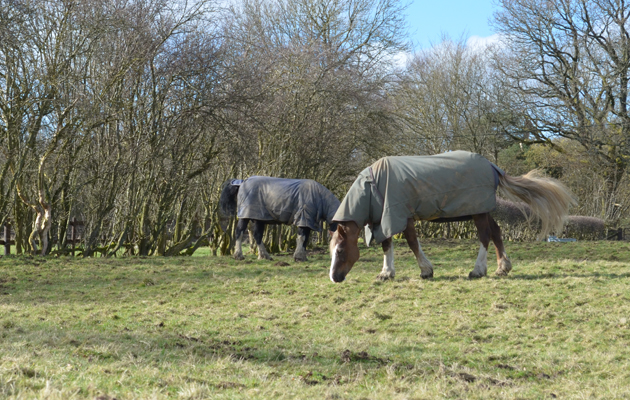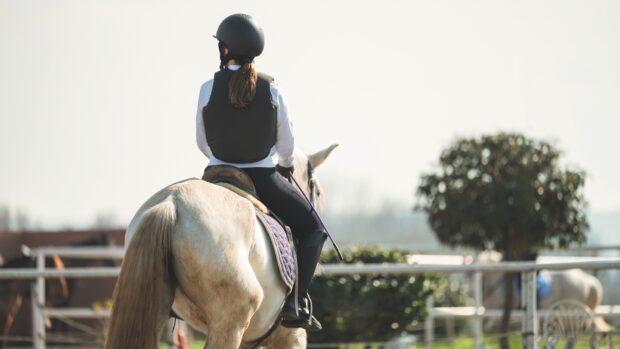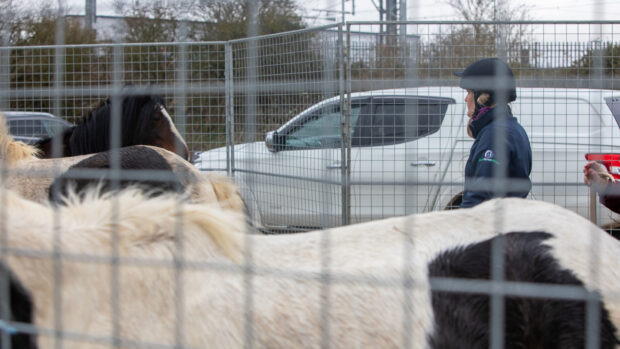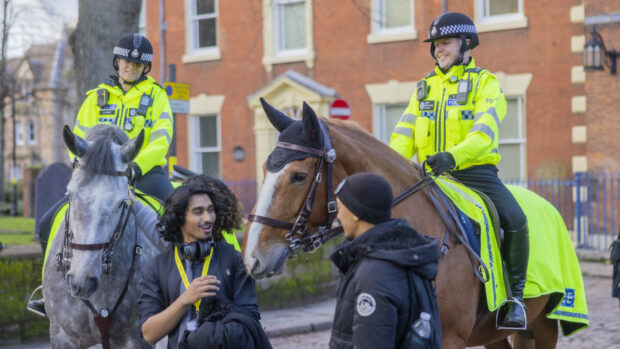CONSIDERING “what it’s like for a horse to be a horse” should be at the heart of efforts to improve equine mental wellbeing, it has been proposed.
A World Horse Welfare webinar on 25 August, supported by the University of Nottingham, covered how best to support horses’ mental health. Andrew McLean, a zoologist who specialises in training horses and elephants, having represented Australia in eventing and ridden to grand prix level in dressage and showjumping, was joined by former champion jockey and pundit John Francome, and long-term World Horse Welfare staff member Caroline Heard.
Dr McLean, who also co-founded the International Society for Equitation Science, spoke of what has changed in equestrian management and training in the last 100 years, and where they are heading.
“I think this is the most exciting presentation I’ve ever put together,” he said.
Dr McLean said science has had a huge impact on equine physical health, but “science hasn’t always helped us understand horses’ minds”.
He said we still understand animals in terms of the ethological effect, talking about hierarchy, for example.
“That’s a big legacy because when we talk about animals in terms of hierarchy, and say, ‘This one’s dominant over that one,’ it leads us to thinking about and training horses in terms of dominance; that narrative is very strong,” he said.
But he added that the “new frontier” is equitation science, “unpacking horse training”, and increasing understanding.
“In terms of welfare, the horse has always been seen in terms of its utility, and the aim in looking after them was to give them a better life,” he added, explaining that this has moved on from a “better life” to “a more worthwhile life”.
“What’s it like to be a horse?” he asked. “But we need to ask, what’s it like for a horse to be a horse, a fundamentally different question as it takes the human out of the equation.”
Dr McLean said all animal industries are subject to rising expectations of welfare, often driven by social media. He cited the shift towards whip-free racing – he is on the board of Racing Victoria and a whip ban is on the cards – and focus on tight nosebands and rollkur.
He believes science will be more embraced in future, to improve welfare and make training more efficient; understanding horses’ thinking will mean better performance as well as happier horses.
“It’s a great and exciting future,” he said, adding that he hopes people will move beyond anthropomorphism and consider horses’ whole lives, rather than how they are at any given moment.
He also believes there may be licences necessary for horse ownership – “nothing onerous and difficult, but there are basic elements all owners should understand”.
“We need to amalgamate behaviour and vet science and continue looking at how we use whips and double bridles; should we be instead privileging trainers who can get the best results with the least amount of weaponry and coercion?” he asked, adding that the sport needs to be “ahead of the game”, and that the FEI should consider this, and launch a think tank, to ensure horse sport has a sustainable future.
He said he hopes horse sport will endure, but with change.
“We need to modernise or perish,” he said. “Sustainability is what we all need to be looking at.”
In a panel discussion, the experts were asked whether a lack of owner understanding affects equine mental health.
Dr McLean said of all horses’ basic needs, “the one we’re worst at is socialisation”, that we tend to forget how social equines are, and how important this is, adding: “That’s an area of welfare we need to improve, and there are gold medals in it if you get it right.”
He also said people need to “get training right”; abandoning punishment for “bad” behaviour, including non-compliance.
Mr Francome added: “If you haven’t got happy horses, you won’t get the best out of them.”
He cited a trainer who would spend hours watching his horses, to know what normal behaviour was for each, so he would then know if something was wrong. World Horse Welfare CEO Roly Owers and Dr McLean agreed; each horse is an individual and should be treated as such.
Asked if owners in general have the skills to optimise equine mental wellbeing, Mr Francome said no.
“A big problem facing the horse world is the poor standard of riding and basic horse management,” he said. “People need to be educated when they learn to ride, to realise they’re on a living animal and should think about nothing but what that horse is thinking, where it’s putting its feet and what’s best for it. Basic standards of riding and horse management need a kick up the backside.”
Mr Owers agreed, adding: “There’s so much education out there, but there’s never been so much ignorance.”
Asked about tools to assess equine wellbeing, Ms Heard cited developments such as behavioural ethograms that can help, as well as having an open mind.
“The horse world is very traditional, and ‘this is the way we’ve always done it’, and it can be difficult to step back and say, ‘Although you’ve done something for 20 years, maybe something else will help,’” she said. “If you keep open-minded, you can see positive results and the benefits of change.”
She added: “There’s so much research coming out. I think people want to give their horses the best but it’s easy to slip into confusion, and the things coming out give me hope that we’re on track to improving equine mental wellbeing and welfare.”
Whips and spurs were mentioned again – Mr Francome said it is “not right that in 2021, we’re still hitting horses who are trying their hardest” – and Ms Heard said such equipment should only be used as aids, adding: “If you’re using whips, spurs or whatever as punishment, that’s not a healthy way to train your horse”.
In summing up, Ms Heard said equine mental health is a “massive topic”.
“It affects everything we do with our horses,” she said. “I think we’re going to learn so much in the next few years; watch this space.”
Dr McLean said owners should learn all they can, about other animals as well as horses, and about what can be done to make their lives better.
“Think about it not from a human point of view but from the horse’s,” he said. “Think about what it’s like for a horse to be a horse.”
- What do you think are the big issues in equine mental wellbeing? Send your thoughts to hhletters@futurenet.com, including your name, nearest town and country, and you could win a bottle of Champagne Taittinger
You might also be interested in:

All riders have a part to play in ensuring horse sport’s future

Legends of the sport: Seven-time champion National Hunt jockey John Francome *H&H Plus*
The seven-time champion was not only “poetry on horseback”, but changed the public perception of jockeys

More euthanasia discussion needed as equine mental health not taken into account *H&H Plus*

João Torrão: the Portuguese rider with world-class Iberians, who admires Carl Hester’s ‘attention to equine mental health’ *H&H Plus*

Crib-biting research could ‘inform human mental health’
‘Interfering with crib-biting could leave the horse vulnerable to the damaging effects of stress’

‘We must let horses be horses’: charity’s welfare warning
‘There are those who pamper their animals, over-feed them treats, keep them in stables all day and pile rugs on

Subscribe to Horse & Hound magazine today – and enjoy unlimited website access all year round
Horse & Hound magazine, out every Thursday, is packed with all the latest news and reports, as well as interviews, specials, nostalgia, vet and training advice. Find how you can enjoy the magazine delivered to your door every week, plus options to upgrade to access our H&H Plus online service which brings you breaking news as it happens as well as other benefits.




